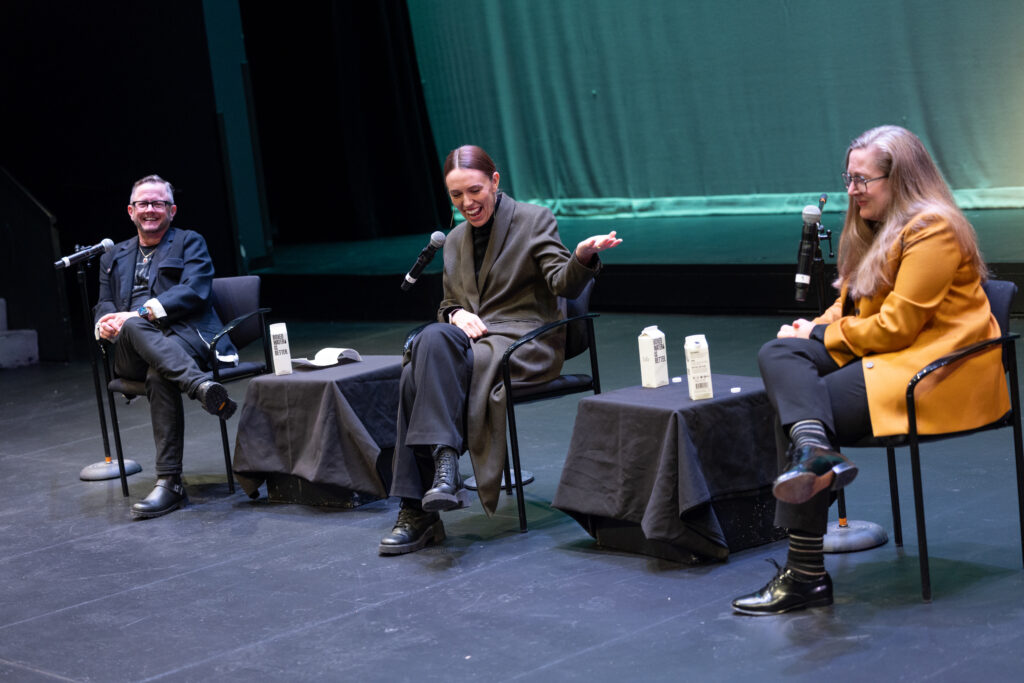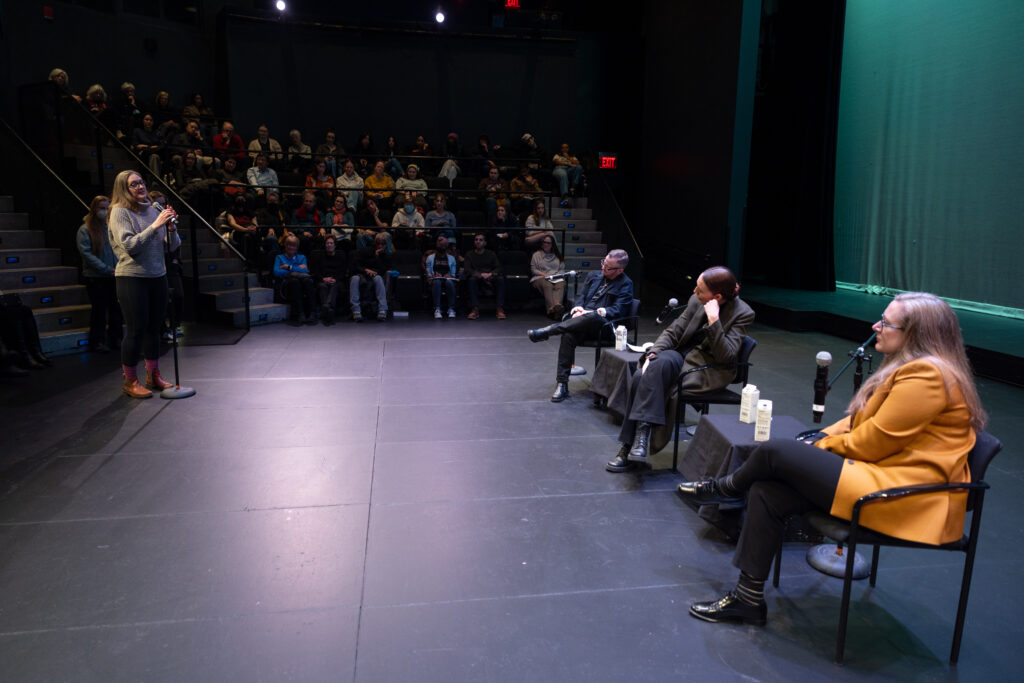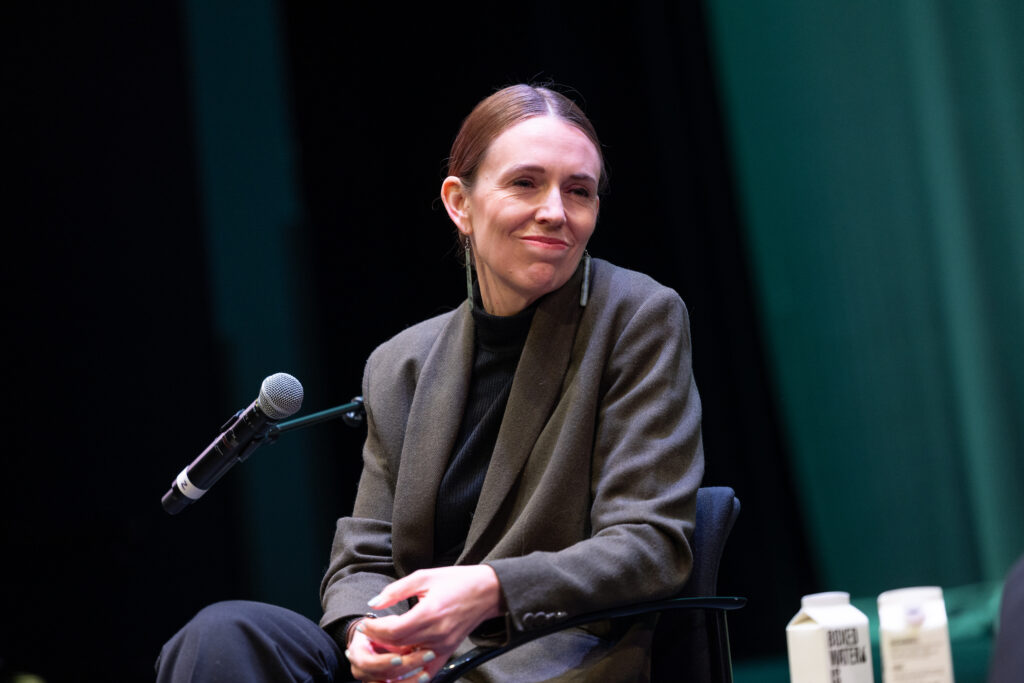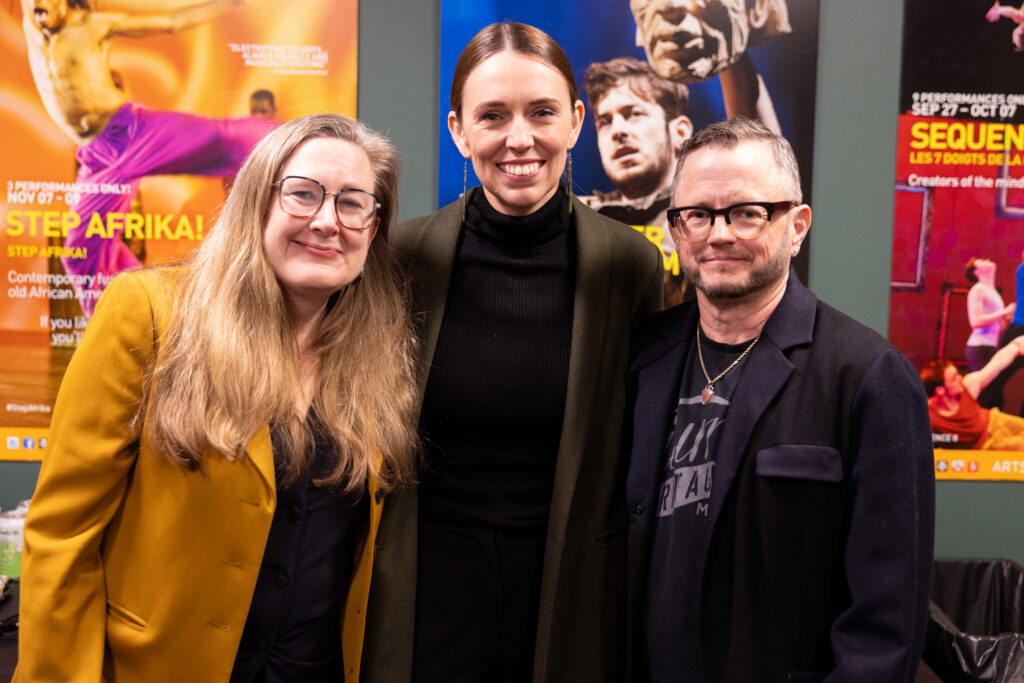Navigating Climate and the Arts: A Conversation with Playwright Sarah Ruhl and Dame Jacinda Ardern

Thirty minutes before house doors opened, the lobby outside of the Semel Theater was packed with a crowd excited that former New Zealand Prime Minister Jacinda Ardern would momentarily speak about her ongoing efforts combating climate change.
At The Whole Story: Climate Change and The Arts talk on February 26, Ardern and award-winning playwright, poet, and Fresh Sound Resident Artist Sarah Ruhl discussed the relationship between the arts and climate change initiatives. The Fresh Sound Artist in Residence is an annual program that connects master artists with students and faculty in the Emerson community, as well as the broader Boston community. It is made possible through the generous support of The Fresh Sound Foundation.
The discussion was moderated by Performing Arts Senior Distinguished Artist-in-Residence P. Carl.
Ruhl wrote the libretto for the opera The Seasons, co-presented by ArtsEmerson and Boston Lyric Opera, which will premiere at the Paramount Center’s Robert J. Orchard Stage on March 12-16. The opera is an adaptation of Antonio Vivaldi’s The Four Seasons, but with a twist—the seasons are out of order, and each one takes a dramatized form.

“I thought, how can I just write another play when this emergency is going on?” Ruhl said. “I sometimes feel numb and helpless about climate change. Art has the potential to make people feel something.”
The opera follows five artists who leave the city and seek a nature retreat, yet the extreme weather thwarts their plans.

“I was interested in the idea that in Vivaldi’s moment, seasons were a time of harmony and you could expect them to come cyclically,” Ruhl said. “But in the opera, the seasons become so extreme that [people] start to pay attention.”
Ruhl and Ardern mentioned they did not meet in the art world; instead, they connected through Instagram. Ardern read Ruhl’s 2022 memoir Smile while working on her own book, A Different Kind of Power. The then-PM DMed Ruhl to tell her how much she enjoyed the book, and sent Ruhl an advanced copy of her own memoir.
In 2017, Ardern, then 37, became the youngest female world leader when she took office in New Zealand. During her time as prime minister, Arden helped pass groundbreaking climate legislation in the country, including the Zero Carbon Act, an independent Climate Commission, the Centre for Climate Action on Agricultural Emissions, and an Emissions’s Reduction Plan. Between 2021 and 2022, New Zealand’s energy emissions decreased by 8 percent, and emissions in the industrial processes and product use sector decreased by 5 percent. These changes came from the implementation of the Montreal Protocol, as well as shutting down the country’s sole oil refinery in 2022.

“In New Zealand, for the most part, we are in agreement that climate change is real and affecting us deeply,” Ardern said. “The debate was [over] how fast do we go?”
During her time as prime minister, Ardern also appointed herself Minister of Arts, Culture and Heritage, and Minister for Child Poverty Reduction. Arden said that the younger generations are bearing the burden of the climate crisis, and politicians are not doing enough. Yet she urged young students in the audience to stay optimistic about the future.
“Without a sense of optimism, we run the risk of indifference,” Ardern said. “Storytelling is critical to this. It moves people in ways that sometimes facts can’t.”
When it comes to climate change, Ardern encouraged students that their individual contributions — and their art — can make a positive impact.
“Climate change is a bit like a football or rugby match,” Ardern said. “Politicians are setting the rules, but they are not the only players on the field.”
Categories